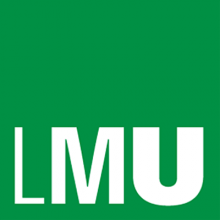Privacy is something of a Marmite concept. Some cling to it in their personal lives, others let their activities and opinions all hang out on social media (not to mention in their back gardens). Some see it as the key bulwark against oppression, others as an impediment to protecting law-abiding citizens from criminals.
The concept is big news, in the wake of the scandal over Cambridge Analytica’s alleged use of Facebook data – gathered by an academic – to influence voters in the Brexit referendum and the US presidential election. The European Commission, which has always valued privacy highly, is about to roll out new data protection laws – which will also be relevant to its aspirations to grow research in artificial intelligence, discussed in our news pages this week.
The Cambridge Analytica affair is still a long way from civil liberties activists’ nightmare scenario of an authoritarian regime using mass-monitoring to control citizens, but it is arguably on the fringes of that territory – particularly if you view Donald Trump as a quasi-fascist with dictator-envy.
That view is articulated again in literary scholar Sarah Churchwell’s new book, Behold, America: A History of America First and the American Dream , about which she is interviewed in our news pages. Its cover features an image from 1937 of Americans in New Jersey doing the Nazi salute under flags bearing the stars and stripes and the swastika. Churchwell’s point is that Trump’s America First rhetoric has a conscious root in historical fascism.
Trump’s antipathy to America’s first black president is well known. He was the main driver of failed attempts to show that Barack Obama had been born outside the US and was, therefore, ineligible for the Oval Office. And it is striking how energetically he has sought to overturn his predecessor’s policies – even when, as in the cases of healthcare, climate change or Iran’s nuclear ambitions, he has no credible alternatives to offer.
Trump’s ban on travel to the US from several Middle Eastern and African countries is another example of racially inflected policymaking. So is his insistence on building the Mexican border wall – Mexico being one of the “shithole countries” from which he is reported to have objected to immigration.
As this week’s cover feature makes clear, Mexico has its problems. In our field of interest, its education system underperforms on international comparisons – and there is little sign of that changing soon. But if its best scholars end up going to the US, it is difficult to see that as anything but a net gain for its neighbour.
US universities would heartily agree, regarding themselves as bastions of meritocracy and internationalism. In some ways, of course, their identification with the anti-Trump cause makes it more difficult for them to influence the opinion of his supporters – however well articulated and evidence based their arguments. As Churchwell admits, “die-hard Trumpers” will not read her book – although she hopes the less committed may be swayed a little.
For all the identification of American campuses with the Left, it was interesting that, at THE ’s Research Excellence Summit in the Czech Republic last week, John Connelly, a historian of European fascism from the University of California, Berkeley, suggested that college students could be easy electoral pickings for illiberal populists offering them relief on their debts. That claim seems surprising: in the US, the trenches in the culture wars are dug deep and switching sides is increasingly regarded as treachery. But it is interesting to speculate how committed modern students truly are to the progressive values they often espouse – particularly in light of the 75th anniversary of the execution by the Nazis of the handful of extraordinary LMU Munich students making up the White Rose resistance movement, which is commemorated in our feature pages this week.
Posting their pamphlets on Facebook would certainly have eased the White Rose members’ distribution headaches in a country in which all travel had to be accounted for. But it is also hard to believe that the movement would have endured for the eight short months that it did had it been possible for the police to data-mine citizens’ communications for phrases indicating opposition, or to track people via their phones and other virtual footprints.
The truth is that no restrictions enacted during relatively liberal eras can restrain subsequent authoritarian regimes from invading privacy for purposes of control. As numerous recent cases from countries such as Russia and Turkey have demonstrated, authoritarian regimes have a less than robust relationship with the law – and even constitutions can be ignored or overturned. In the end, the preservation of tolerance, respect and freedom comes down to the mindsets of individuals and societies.
Education remains the best tool we have to mould minds capable of seeing through propaganda and fake news. But given the array of political, media and technological forces intent on stoking humanity’s worst instincts, the tug-of-war will not easily be won.
POSTSCRIPT:
Print headline: No privacy agreement
Register to continue
Why register?
- Registration is free and only takes a moment
- Once registered, you can read 3 articles a month
- Sign up for our newsletter
Subscribe
Or subscribe for unlimited access to:
- Unlimited access to news, views, insights & reviews
- Digital editions
- Digital access to THE’s university and college rankings analysis
Already registered or a current subscriber? Login






